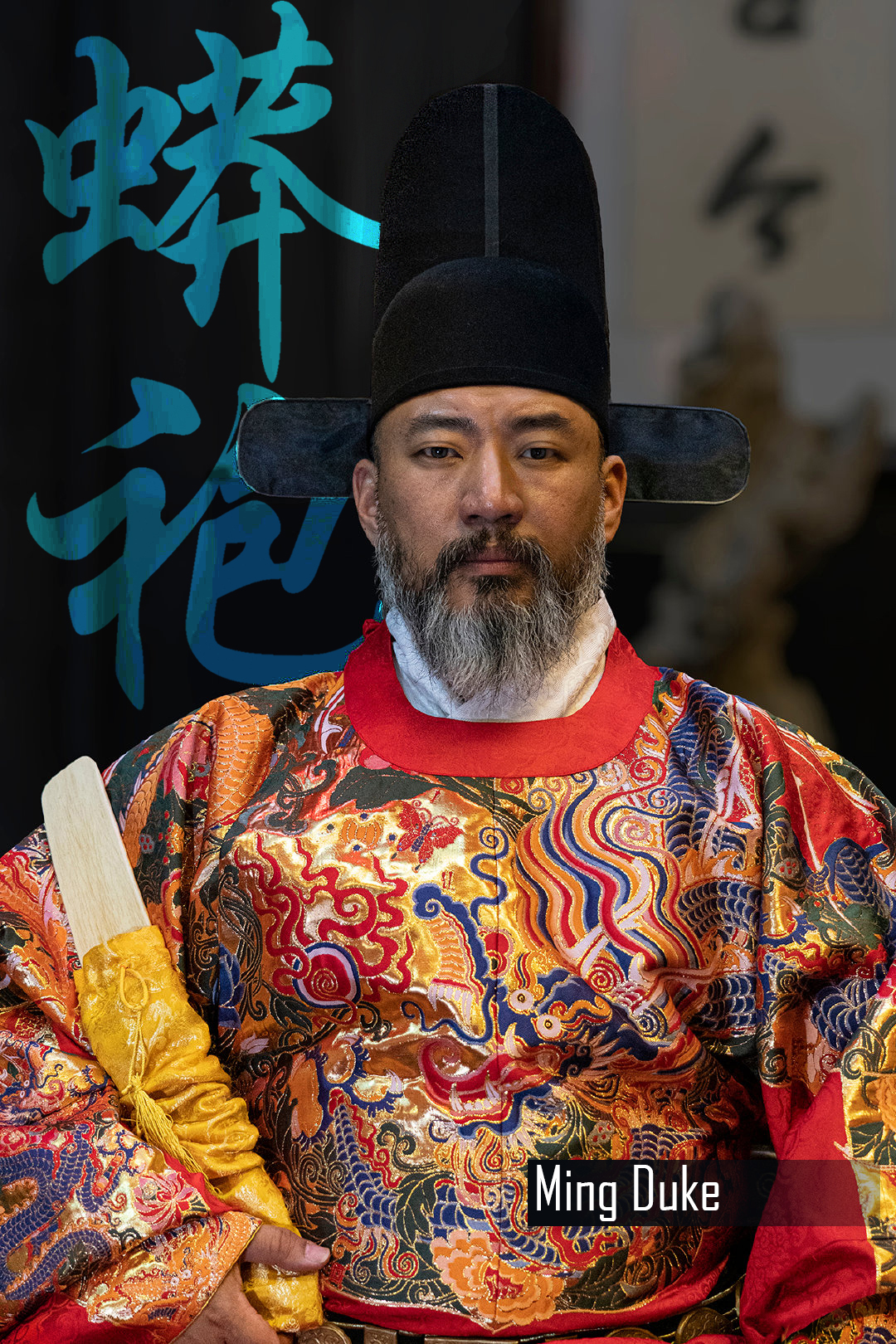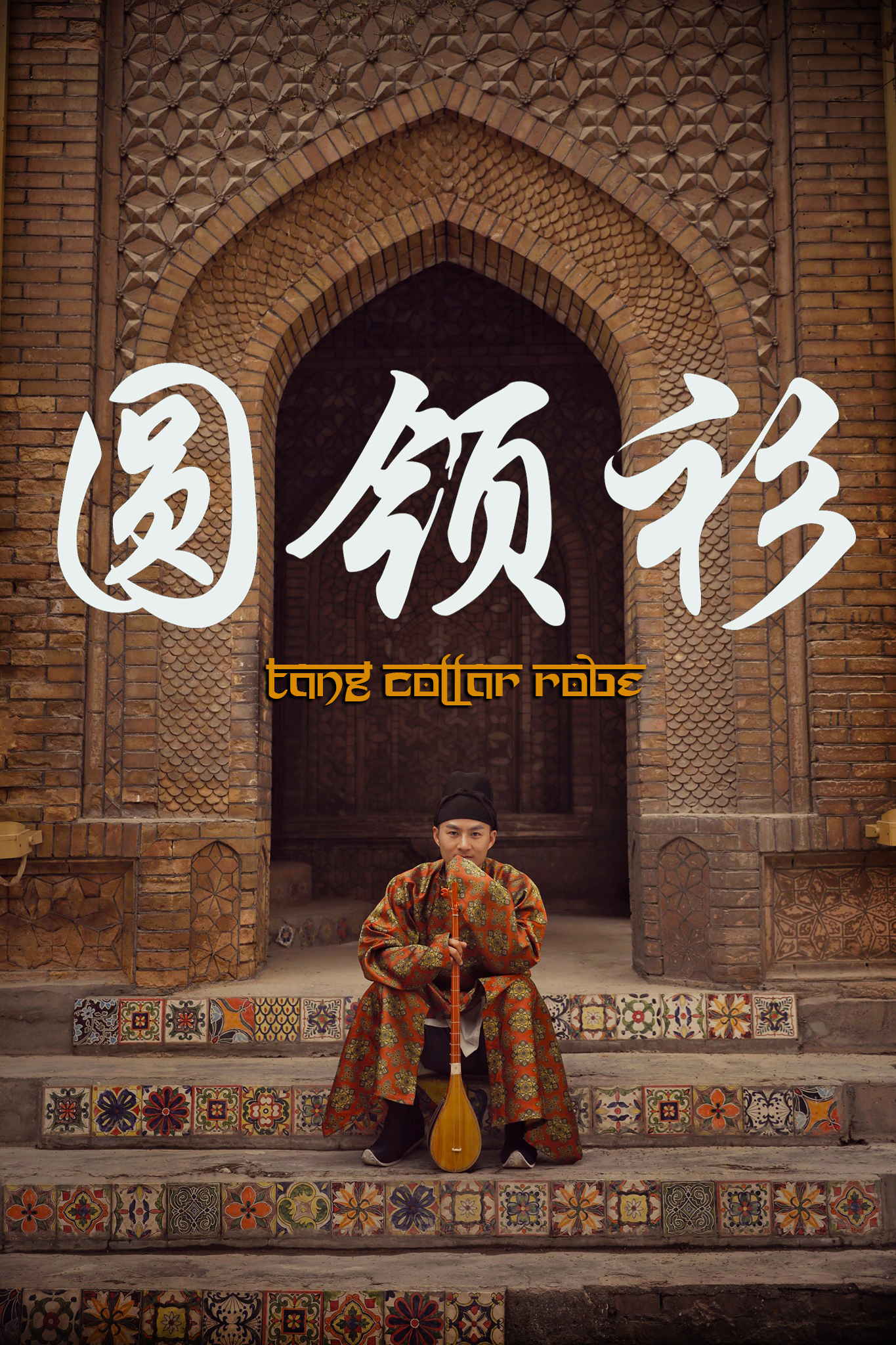UNIT. Late Ming Imperial Guard 锦衣卫連鐶甲
JYC TOY - 1/6TH SCALE MING PALACE GUARD
Note the bright silk robe with elaborate motifs underneath the chainmail shirt,
these would be the eponymous "brocade robes" with dragon-snakes (boa)
Jinyiwei, literally meaning brocade-clad guard, was the name given to the imperial military guards responsible for the emperor’s personal security, as well as serving as his secret police, throughout the Ming Dynasty (1368 – 1644) in China. The figure depicted represent a battlefield agent/ imperial bodyguard encased in late Ming (1600-1644) chainmail armor.
Jinyiwei were marked by their impressive physical appearance, as they were the cream of the crop of fighters. Their uniforms were made of rich brocade, hence the name. To signify their high status, top ranking Jinyiwei wore a robe with the pattern of a boa constrictor, an animal similar to the dragon – a symbol of the emperors.
The cast of the head for the figurine is molded after the legendary Chinese actor 张丰毅
and one of the main characters in"Farewell my Concubine."
In the case of the Japanese invasions of Korea between 1592 and 1598, in which the Ming army successfully defended Korea from Japan’s aggression, the Jinyiwei served as secret agents gathering vast amount of intelligence about Japan.
The special badge worn by the Jinyiwei to designate their
status as an agent or a bodyguard of the Ming emperor
Domestically, they had an infamous reputation for torturing suspects in illegal ways. As they had direct access to the emperor, they inspired fear among court officials. However, in most cases, they only targeted people serving the imperial court. Common people usually were left off their radar.
For a more detailed analysis of the Jinyiwei's founding and chaotic history, you can find them in my blog.
~
MING CHAINSHIRT
Late Ming Chainmail armor, usually reserved for mounted troops, though the Chinese
had been aware of Chainmail, it was never adopted in mass numbers until the mid- late
Ming dynasty and the early Qing dynasty. By the 1620s, Ming armor in general
would have appeared nearly identical to the armor of their Manchu Qing foes. Consisting
mostly of brigandine, and chainmail shirts such as these~ heavier armor like the
scaled cuirass would have been mostly phased out by this point.
Late Ming helmet, 17th century.
Late Ming (1550-1600s) armor for generals and important guards. Consisting of a conical cavalry
helmet topped with rank signifying banners and a scale cuirass to protect the torso. As with the majority of
Chinese troops, they are versatile in equipment- wielding both the bow, saber, and lance.
Ming military governor of a northern province, in late Ming armor, armed with a Jian and a bow,
and encased in scaled cuirass. He sits upon either a commander's throne with the fur of a lion.
Common Chinese name for mail armour is Suo Zi Jia (鎖子甲), but Ming Chinese had another name for this armour — Gang Si Lian Huan Jia (鋼絲連鐶甲, lit. 'Steel wire linked chain armour'). According to early Qing Dynasty dictionary Zheng Zi Tong (《正字通》), Chinese mail utilise 4-in-1 weave pattern, similar to European mail.
~
CIVILIAN ATTIRES
As stated above, the Jinyiwei are marked by their extremely flamboyant silk robes, which served to make them intimidating in official functions. A full ranked imperial agent would be marked with the motif of the Boa Constrictor/ dragon.
A group of Jinyiwei serving as imperial bodyguards on the Emperor's grand tour to his
ancestral tomb
An agent in "work" uniform, and another in his palace uniform.
→ ☯ [Please support my work at Patreon] ☯ ←































Comments
You wrote:
"In the case of the Japanese invasions of Korea between 1592 and 1598, in which the Ming army successfully defended Korea from Japan’s aggression, the Jinyiwei served as secret agents gathering vast amount of intelligence about Japan"
Is there any evidence for this? I've read meany of the books on the Imjin War, the Guard is never mentioned.
However that completely changed with Hideyoshi's invasion. The fact the Japanese were able to utterly destroy half of Korea's defenses within half a month, take its capital in one month, and nearly took over all of Korea in two month showed Japan was a previously underestimated foe that must be researched thoroughly.
The Jinyiwei were deployed not only as translators and agents behind enemy lines. During one time a Ming agent was able to sneak into the camps of Kato Kiyomasa and Ukita Hideye and burn away the complete provision stock of the entire Japanese army, forcing them to completely withdraw to Busan to hide from the combined Ming and Admiral Yi's assaults. Shows how much one man could do against a whole army.
Some Jinyiwei was also sent to Japan to collect intel to help to win that war.